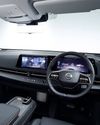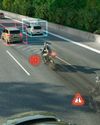Rapidly changing customer demands are prompting companies to come up with innovative car wheel designs. Set-up with an initial capacity to roll out 90,000 units per month in 2016, Minda Kosei Aluminium Wheels underwent a capacity ramp-up last year to serve the growing alloy wheel demand in India. Auto Tech Review recently visited the company’s Bawal facility to know more about its manufacturing capabilities.

INTRODUCTION
A 70-30 joint venture between Uno Minda Group and Japan-based Kosei Group, Minda Kosei Aluminium Wheels Ltd (MKAWL) was inked in May 2015, and a year later – in May 2016 – the company set-up its first facility in Bawal to cater to the alloy wheel requirements for Maruti Suzuki India’s passenger car portfolio with an initial capacity of 90,000 units per month. MKAWL’s Bawal facility currently operates across three shifts and rolls out around 4,000 alloy wheels per day, with radius size in the range of 13 to 17 inches. VP Singh, VP – Operations Head, MKAWL said 15 and 16 inch radius sizes of alloy wheels contribute around 50 % of the company’s volumes.
MKAWL primarily imports alloys certified under A3562 nomenclature of American Society for Testing of Materials (ASTM) from trusted vendors of Kosei. The alloy mixture used is a blend of aluminium, magnesium, silicon, titanium, strontium and titanium in the form of bricks. MKAWL has installed eight melting furnaces that operate at a temperature of 670-680 °C to melt alloy bricks into liquid metal. Aluminium has the tendency to react with atmospheric oxygen, thus liquid nitrogen is passed through the molten material for degassing operation, Singh said.
The MKAWL top official said this passing of nitrogen is helpful towards removing unwanted gases from the alloy and make the material more robust for production. Each melting furnace is powered by CNG to reduce conventional fuel consumption and is assigned with one person, who manually pours the metal into two dies simultaneously. The casting procedure of one alloy wheel in a die is completed in five minutes, following which the wheel is transferred to heat treatment furnace on a conveyor. Singh said the facility is also equipped with an X-ray lab to maintain in-house quality and conducts random checks on the wheel casted out of a die.
MACHINING PROCESS
This story is from the November 2018 edition of Auto Tech Review.
Start your 7-day Magzter GOLD free trial to access thousands of curated premium stories, and 9,000+ magazines and newspapers.
Already a subscriber ? Sign In
This story is from the November 2018 edition of Auto Tech Review.
Start your 7-day Magzter GOLD free trial to access thousands of curated premium stories, and 9,000+ magazines and newspapers.
Already a subscriber? Sign In

Sound Generation For Enhanced Road Safety
With an ever-increasing number of fully electric and hybrid vehicles entering the market, we are witnessing a change in the acoustic experience in and around the car. The silent nature of the electric powertrain means that other road users miss the familiar acoustic cues that warn them of an approaching vehicle. To remedy this situation, Harman is working on various noise management solutions.

OBJECTIVE ASSESSMENT OF THE SAFETY CONTRIBUTION OF TODAY'S AUTOMOTIVE HEADLAMPS
Good lighting makes a major contribution to road safety. In 2011, the International Commission on Illumination (CIE) presented an evaluation system for headlamps that can objectively assess the quality of illumination and glare limitation. New light sources like LEDs and lighting functions (glare-free high beam, partial high beam) have been available for several years, so that an extension of the proven CIE method is necessary, which takes into account, among other things, changed switch-on and service lives of new lighting functions and represents a generally understandable evaluation system. An evaluation system presented in the following by the Technische Uni versität Darmstadt, which was developed by an encompassing expert commission, is intended to provide representative data and enable an objective evaluation of headlamp performance.

RAPIDO RE-INNOVATES TO CATER TO POST COVID-19 LAST MILE CONNECTIVITY
The rapid pace of urbanisation in the country has witnessed cities expanding and subsuming surrounding villages and smaller towns, evolving into Tier II and III cities.

FUNCTIONAL SAFETY STANDARDS TOP PRIORITY FOR FUTURE AUTOMOTIVE DEPLOYMENT
Increasing levels of electronic content in vehicles result in a large amount of software that is required to run the scenes behind the mechanical aspects of a vehicle. Electronic systems in automobiles are part of every section, from the powertrain to comfort and convenience systems as well as all types of safety equipment. This makes electronics and the software running these systems a critical part of the equation for future mobility solutions. In addition, putting standards in place to measure methods of developing, testing and functioning of such electronic systems also becomes highly relevant.

“BYD'S EV STRATEGY TO ENCOMPASS MOST FORMS OF TRANSPORTATION NEEDS IN INDIA”
The country’s electric vehicle (EV) ecosystem is grappling with a plethora of challenges even as it is striving to wriggle itself out of the ‘nascent stage’ tag. In an exclusive chat with Auto Tech Review, Zhang Jie Ketsu, Executive Director, BYD India shares his perspective on the current EV scenario and how the company intends to progress faster in the Indian automotive industry

SAFETY IN ELECTRIC AND AUTONOMOUS CARS – SIMULATION OF COMPLEX CRASH SCENARIOS
Electric and autonomous vehicles allow for novel seating arrangements and packaging strategies, presenting new safety challenges. Physical crash testing must be supplemented with virtual simulation to ensure vehicle safety on shorter development cycles. With its Simcenter Madymo MBS software, Siemens provides improved runtimes and the Active Human model, enabling accurate and rapid occupant safety analysis in complex crash scenarios.

KIA SONET – A MIGHTY OFFERING IN THE COMPACT SUV SEGMENT
It wouldn't be wrong to say that Kia Motors India has taken the Indian market by storm in less than 12 months of its presence in the market.

NISSAN'S NEW DIRECTION: ARIYA ALL-ELECTRIC
Marking a key milestone in Nissan’s transformation strategy, Ariya ticks a lot of boxes highlighting the strengths of the global automotive giant.

BETTER SAFETY WITH EMERGENCY BRAKE ASSIST FOR MOTORCYCLES
Rear-end collisions with a slower vehicle suddenly cutting into the lane and intersection accidents with cross-traffic are among the most frequent motorcycle accident types. Continental is now developing an emergency brake assist, which detects an imminent collision with a vehicle ahead or with an obstacle, warns the rider and supports him during braking

ADAS WILL SERVE AS CATALYST FOR IMPROVED VEHICLE SAFETY
The automotive industry across the globe is increasingly focussing on safety.